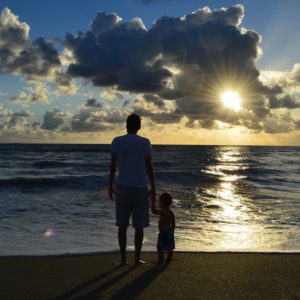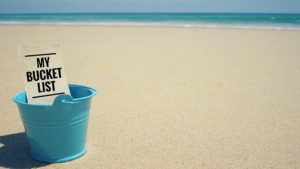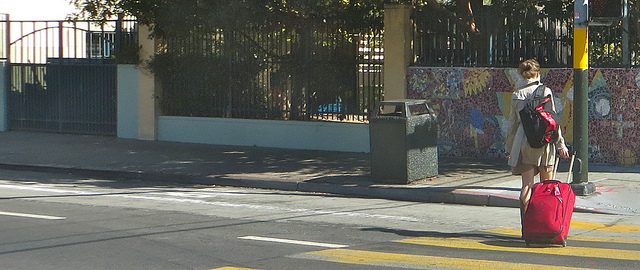Father’s Day is coming up on Sunday, June 19th. If you are looking for gifts you can help your host children make, check out the Au Pair in America pinboard.
Yearly Archives: 2022
Happy Summer

Now that school is out (or almost out), please sit down with your au pair and discuss what her hours will be for the Summer. The best thing about hosting an au pair is the flexibility of the schedule. Try to give your au pair as much time as possible when the schedule will be changing to avoid any conflicts with school or vacations, keeping in mind the government requirement that the au pair work NO MORE THAN 10 hours in one day and 45 hours per week. A work week for the au pair is 7 days and during those 7 days, she must have one FULL day off and one day where she does not work more than 5 hours, with no split schedule on the 5 hour day.
Each month, your au pair must have a weekend off. This means a Friday when she would normally get off work until Monday morning when she would normally go back to work, she must be off. This is essential to the happiness of the girls and gives them the ability to go away with friends for the weekend, or take a weekend class if their work week does not allow time to take a class.
The au pairs are not permitted to work hours over and above the 45 hours each week, even for extra pay. We don’t want the girls to “burn out”. It’s not safe, and the safety of our children is the most important. If you find you are at or above 45 hours each week, perhaps a part time day camp or a baby sitter for the extra hours is needed. Your au pair should only be caring for your children.
Taking a class while the au pairs are here is a program requirement. It’s not an option. The au pairs come on a J-1 visa that requires the au pairs to achieve 6 credits or it’s equivalent (72 class hours) during their year here. This requirement must be completed to meet the terms of the visa. Please work with your au pair and the schedule to ensure she has time to attend class. Make sure you are not waiting until the last few months to cram in classes. That never works. While there are very few summer classes, the fall schedule is online and I suggest registering for a class as soon as possible in the event it is canceled and you have to make another choice. A list of schools the au pairs may attend is on our cluster blog.
One final note, if you are going to be traveling away from Northern Virginia with your au pair for more than 4 days, please let me know. Especially if you will be leaving the country, ie, Mexico, Caribbean, cruise, etc. There are forms that must be filled out so there are no issues with the au pair reentering the country.
I hope you have a safe and fun summer!
Summer Safety Tips
During the summer months we need to take some added precautions to keep children safe in the sun and by the water. Here are some good tips.
- Avoid long periods of sun exposure especially between 10.00am and 4.00pm
- Apply sunscreen of at least 15 SPF that protects against both UVA and UVB rays should be worn on sunny and cloudy days.
- Infants should be dressed in lightweight clothing covering as much skin as possible and brimmed hats to shade the face
- Stay hydrated, drink water throughout the day
- Intense activities and sports should be reduced whenever high heat and humidity reach critical levels
- Never leave children or animals in a car unattended.
- Actively supervise children in and around the water, giving them your undivided attention. Appoint a designated “water watcher,” taking turns with other adults. Be very clear who is in charge.
- When in the water there should be an adult at arms length from young children at all times
- Children who cannot swim or who are not strong swimmers should wear water wings or life jackets when in the water
- Swim in designated areas supervised by lifeguards.
- Always swim with a buddy; do not allow anyone to swim alone. Even at a public pool or a life-guarded beach, use the buddy system!
- If you go boating, wear a life jacket! Most boating fatalities occur from drowning.
- Avoid alcohol use. Alcohol impairs judgment, balance and coordination; affects swimming and diving skills; and reduces the body’s ability to stay warm.
As well as the host parents numbers, au pairs should have the phone number of the community counselor and the Au Pair in America 800 number saved to their phones. This way if they need assistance they can quickly and easily dial the number. Remind you au pairs to call immediately if there is any issue with a child in their care. Host families should make sure that au pairs know what to do if there is an emergency situation while they are in charge of the children, this is a good time of year to review any family rules that apply to summer activities especially by the pool and while at the beach.
Enjoy the summer and be safe!
Memorial Day
Memorial Day is a patriotic holiday in the United States of America, celebrated on the last Monday in May. It is a celebration of remembrance for the brave service of men and women who gave their lives for their country. Memorial Day was declared a federal holiday in 1971. We now, designate this day to remember loved ones who have passed on, as well as remembering our service men and women. Flowers and flags are placed on graves in remembrance of them. Parades and dedications of memorials usually are part of the day’s activities. Boy Scouts, Girl Scouts, local marching bands, members of the armed service, fire departments, police departments, and fraternal orders often march in parades and attend ceremonies to commemorate the day.
Here are a couple of links to website that have activities you can do with the children in honor of Memorial Day.
Au Pair Bucket List
Here’s a “bucket-list” with 52 fun ideas for every week of the year. Have fun!
1. Travel to NYC
2. Attend an outdoor concert
3. Travel to California
4. Carve a pumpkin
5. Travel to Niagara Falls
6. Attend a baseball game
7. Eat a banana split
8. Travel to Philadelphia
9. Go camping
10. Travel to Boston
11. Go on a cruise
12. Go to Disneyland or Disneyworld
13. Travel to Chicago
14. Attend a football game
15. Attend a live concert
16. Travel to New Orleans
17. Get an American driver’s license
18. Attend an American college
19. Make American friends
20. Shop at Target
21. Go to an American mall
22. Try American BBQ
23. Eat crabs!
24. Halloween
25. Thanksgiving
26. Christmas
27. Try classic American foods
28. Visit a county or state Fair
29. Try a root beer float
30. Try pumpkin pie
31. See historical places
32. Visit the museums and monuments in D.C.
33. Shop on Black Friday
34. Eat peanut butter
35. See the Atlantic Ocean
36. Watch the fireworks on the 4th of July
37. Travel to Hawaii
38. Walk through a corn maze
39. Travel to Florida
40. Try American pizza
41. Travel to the Grand Canyon
42. See the Fall leaves
43. See the Pacific Ocean
44. Attend a Broadway (or off Broadway) show
45. Learn about colonial history/visit sites
46. Learn about the civil war/visit sites
47. Tour great museums and galleries
48. Attend school at a local college
49. Go to a diner or a drive in diner
50. Explore your local community
51. Take a train ride
52. Get to know your host family
Vacation And Holiday Reminders
“Rest and be thankful.” – William Wordsworth
Holidays and vacations are a great opportunity to rest, recharge and explore the U.S.
Memorial Day Weekend is the unofficial start of summer travel season. Here are some reminders about program rules regarding holidays and vacations.
Holidays
- Host families are not required to give au pairs any specific holidays.
- Each host family will make different arrangements on holidays, some au pairs will be off and others will be required to work.
- Au pairs should not make plans for holidays without checking with your host family first.
Vacations
- During the pandemic, it is important that au pairs and host families discuss what travel and activities are an acceptable level of risk before plans are made.
- Au pairs earn 2 weeks of paid vacation during the course of their year.
- Vacation time should be mutually agreed upon.
- All vacations should be preplanned (at least 4 weeks in advance).
- All au pair’s friends and/or family visits/vacations should be pre-approved prior to purchasing tickets.
- If an au pair travels with her host family, it should be discussed in advance whether this is the au pair’s vacation or if she is working.
- If an au pair travels with the host family to work, the host family is required to pay for her transportation, lodging, and meals. Regulations still apply while on vacation (i.e. not working more than 10 hours/day and 45 hours/week, minimum 1 1/2 days off, and private bedroom).
Mother’s Day
Mother’s Day is celebrated each year in the U.S. on the second Sunday in May. This year that is May 8th.
It is always a nice gesture to do something for your host mom. You could help the children make a surprise for her or give her a card yourself. Any gesture is appreciated.
Don’t forget to send a special message to your own mom back home. Without her love and support, you wouldn’t be here today.
You will find great ideas for projects you can make with your host children here on the Au Pair in America Mother’s Day Pinboard.
Wishing a Happy Mother’s Day to all the host moms in our cluster!
What To Do After A Car Accident
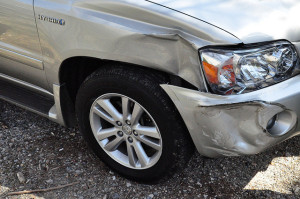 Having a car accident is a very upsetting, stressful situation. Being prepared and knowing what to do can make things a little bit easier. Make sure you know which host parent to call in case of an accident.
Having a car accident is a very upsetting, stressful situation. Being prepared and knowing what to do can make things a little bit easier. Make sure you know which host parent to call in case of an accident.
Make sure you have your car registration card and car insurance card (most host families keep these documents in the car glove compartment. Make sure to check with them before you start driving).
If you have an accident:
- Keep Safety First. Drivers involved in minor accidents with no serious injuries should move cars to the side of the road and out of the way of oncoming traffic. Leaving cars parked in the middle of the road or busy intersection can result in additional accidents and injuries. If a car cannot be moved, drivers and passengers should remain in the cars with seat belts fastened for everyone’s safety until help arrives. Make sure to turn on hazard lights and set out cones, flares or warning triangles if possible.
- Exchange Information. After the accident, exchange the following information: name, address, phone number, insurance company, policy number, driver license number and license plate number for the driver and the owner of each vehicle. If the driver’s name is different from the name of the insured, establish what the relationship is and take down the name and address for each individual. Also make a written description of each car, including year, make, model and color — and the exact location of the collision and how it happened. Finally, be polite but don’t tell the other drivers or the police that the accident was your fault, even if you think it was.
- Photograph and Document the Accident. Use your phone camera to document the damage to all the vehicles. Keep in mind that you want your photos to show the overall context of the accident so that you can make your case to a claims adjuster. If there were witnesses, try to get their contact information; they may be able to help you if the other drivers dispute your version of what happened.
Easter Celebration
Easter is the most important and oldest festival of the Christian Church, celebrating the resurrection of Jesus Christ and held (in the Western Church) between March 21 and April 25, on the first Sunday after the first full moon following the northern spring equinox.
In America, many families choose to decorate eggs and later hide on their yard to send the kids on an Easter Egg Hunt.
Visit the Au Pair in America Spring Holidays board for some great crafts and activity ideas to share with your kids or host kids.
Create A Spring Break Game Plan

“Game plan” means a strategy for how you are going to accomplish something. In the case of keeping kids from getting bored and/or into trouble, the best way to prevent it is to keep them busy with safe, fun activities. When there are days home from school, letting kids sit around watching TV or play video games is not the best use of their time. Providing fun alternatives will make it much easier to pull them away from the screen.
You need to make a plan of what you will do with them each day and prepare for that. Planning is very important. You don’t want to tell them you are going some place fun, only to arrive there and see they are not open that day or you needed to bring something and you don’t have it.
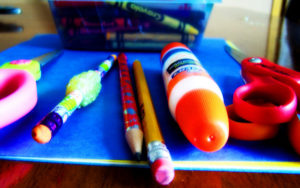 If your plan includes a craft or cooking project, make sure you have:
If your plan includes a craft or cooking project, make sure you have:
- all the ingredients/supplies
- recipe/directions
If your plan includes an outing to someplace fun, figure out:
- How will you get there?
- When you should leave?
- How much it will cost?
- What will you do for lunch?
Use some of these online resources to find activities and recipes:
- Au Pair in America Pinterest Pinboards
Have a wonderful Spring Break!

